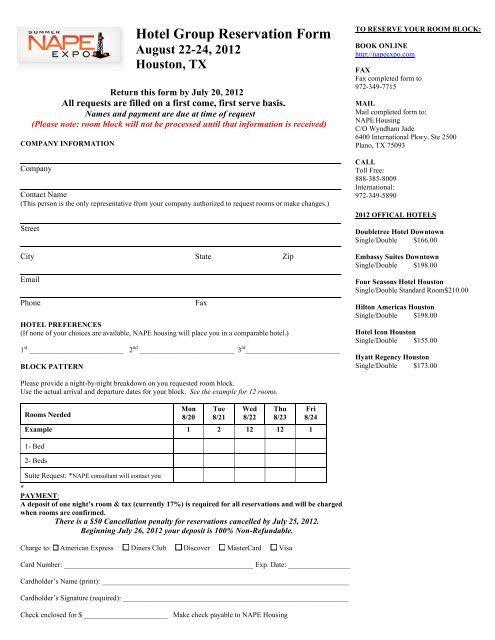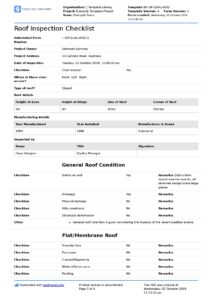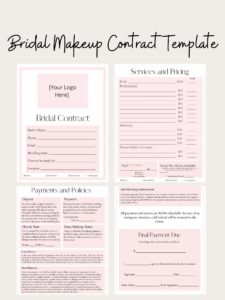Organizing a large event, a corporate retreat, or a wedding block? The excitement of bringing a group together under one roof is often matched by the complexities of logistics, especially when it comes to accommodations. Ensuring everyone has a comfortable stay and that all arrangements run smoothly requires careful planning and, more importantly, a clear, written agreement with your chosen hotel.
This is where a robust contract comes into play, serving as the backbone for any successful group booking. It clarifies expectations, defines responsibilities, and protects both parties involved. Having a well-defined hotel group reservation contract template at your fingertips can save immense time and prevent potential headaches down the line, ensuring a seamless experience for everyone involved.

What Should a Solid Hotel Group Reservation Contract Template Cover?
A comprehensive contract isn’t just a formality; it’s a vital tool that details every aspect of your group’s stay, from the moment a reservation is considered until the last guest checks out. It sets the ground rules, preventing misunderstandings and providing a clear reference point if any issues arise. Think of it as your safety net and instruction manual rolled into one, meticulously outlining the services provided and the obligations of both the hotel and the group organizer.
Guest Room Details and Room Block Management
One of the first and most critical sections will focus on the actual guest rooms. Your template should clearly specify the number of rooms blocked, the different room types (e.g., standard king, double queen, suites), and the agreed-upon group rate for each. It’s also essential to include the “cutoff date,” which is the last day by which attendees can book rooms within the block at the special group rate. Beyond this date, unreserved rooms are typically released back to the hotel’s general inventory, and any new bookings are subject to availability and prevailing rates. Details on how individual reservations will be made, such as a dedicated booking link or a specific contact person, should also be outlined.
Navigating Payment Schedules and Deposits
Financial terms are always a central part of any contract. This section needs to be crystal clear, detailing the required deposits, their due dates, and the amount of each payment. Hotels often require an initial deposit to secure the room block, with subsequent payments staggered leading up to the event. The template should also specify the final payment due date, accepted payment methods (e.g., credit card, wire transfer, check), and whether individual guests are responsible for their own room charges or if a master bill will be utilized for certain expenses.
Essential Clauses You Can’t Afford to Miss
Beyond the basic booking and payment details, several crucial clauses protect both parties and clarify what happens in various scenarios. A good hotel group reservation contract template will include specific provisions for these.
- Cancellation and Attrition Policies: This is perhaps one of the most vital sections. It defines the penalties if the group cancels the booking entirely or if fewer rooms than originally blocked are ultimately utilized (attrition). These policies often become stricter closer to the event date.
- Force Majeure: This clause outlines circumstances beyond the control of either party (like natural disasters, pandemics, or government mandates) that could prevent the event from happening, typically allowing for cancellation without penalty.
- Liability and Indemnification: This defines who is responsible for damages to the property or injuries occurring during the event, and how disputes or claims will be handled between the parties.
- Dispute Resolution: In the unfortunate event of a disagreement, this section provides a roadmap for resolving issues, whether through negotiation, mediation, or legal action.
Additional Services and Amenities
If your group needs more than just rooms, your contract should reflect these additional requirements. This might include details about meeting space rental, catering menus and minimums, audio-visual equipment, transportation services, or special amenity requests for guests. Any complimentary services, such as a welcome reception or free parking, should also be explicitly mentioned to avoid any confusion later. Ensuring these are all listed from the outset means there are no surprises or last-minute charges.
Finally, remember that while a template provides a strong foundation, every group booking is unique. It’s always wise to review and customize the agreement for each specific event, ensuring it precisely reflects your discussions and requirements. A legal review is also highly recommended, especially for large or complex events, to ensure all terms are fair and legally sound for both the hotel and the group organizer.
Why Is Having a Reliable Hotel Group Reservation Contract Template So Crucial?
Having a well-structured and comprehensive hotel group reservation contract template is far more than a bureaucratic hurdle; it’s an indispensable tool for efficiency, clarity, and protection. For hotels, it streamlines the booking process, ensuring consistency across various group clients and minimizing the administrative burden. For event organizers and clients, it offers peace of mind, knowing that all agreed-upon terms are documented and binding.
Firstly, it acts as a crystal-clear communication bridge. Ambiguity is the enemy of any large-scale planning, and a detailed contract eradicates it by putting everything in black and white. From room rates and cutoff dates to specific catering requests and audiovisual needs, every element is meticulously recorded, leaving little room for misinterpretation or forgotten details that could derail an event. This clarity prevents uncomfortable disputes and last-minute scrambling, which can be stressful for both parties.
Secondly, a contract provides significant legal protection. In the unlikely event that something goes wrong—whether it’s an unexpected cancellation, a dispute over charges, or a failure to deliver agreed-upon services—the contract serves as the primary legal document. It outlines the rights and obligations of both the hotel and the group organizer, making it easier to resolve conflicts efficiently and fairly, potentially avoiding costly litigation. This legal framework is a non-negotiable aspect for any significant financial commitment.
Moreover, a standardized template fosters professionalism and trust. When a hotel presents a clear, comprehensive contract, it signals competence and a commitment to transparency. Similarly, when a group organizer understands and adheres to the contract, it builds a foundation of respect. This level of professionalism enhances the overall experience and can lead to stronger, long-term relationships between hotels and recurring clients, making future bookings even smoother.
Ultimately, by formalizing all aspects of a group reservation, the template safeguards the interests of everyone involved. It manages expectations, provides a roadmap for resolving issues, and allows both the hotel and the group to focus on the success of the event itself, rather than getting caught up in administrative uncertainties.
The process of organizing a group stay, whether for business or pleasure, can be incredibly rewarding when handled with foresight and attention to detail. A well-prepared agreement ensures that everyone understands their role and responsibilities, leading to a much smoother and more enjoyable experience. By taking the time to review and understand every clause, you’re investing in the success of your event and the satisfaction of your guests, paving the way for memorable gatherings without unexpected snags.



